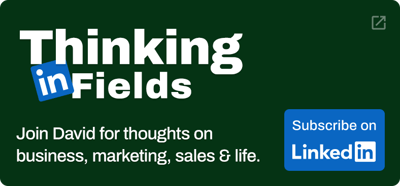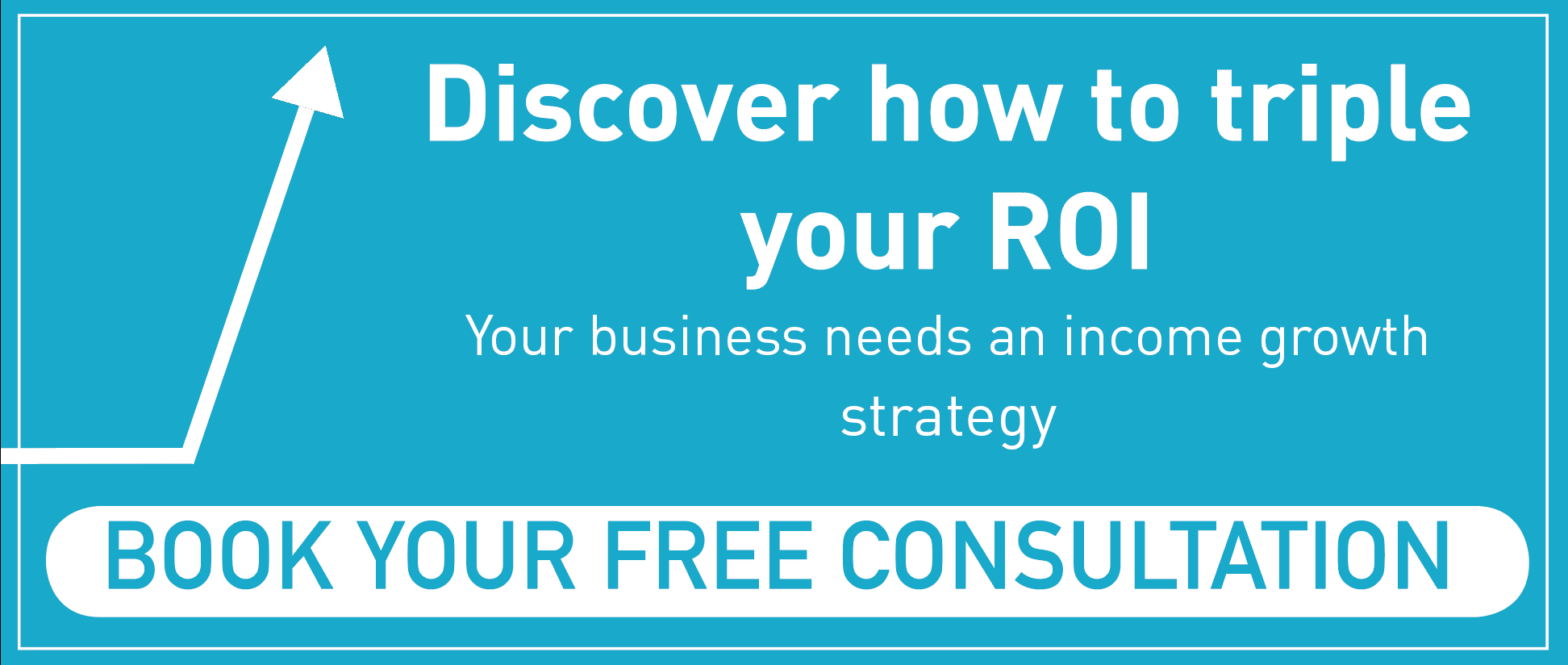Why Should I Use Inbound Marketing?

Since 2006, inbound marketing has been the most effective method for doing business online, this is because it generates 3x more leads than traditional marketing and it costs 62% less per lead (Hubspot). This is because it takes away the cost of printing marketing collateral and buying email lists, and it attracts and converts customers in a much more organic and cost-effective way.
The inbound methodology is strategy and tactics
It is exceptionally common for businesses to have goals, but lack the appropriate strategy to achieve these goals. Most organisations will simply employ a series of tactics, trying a bit of this and that and hoping for the best, which will not give them the structure or process required to effectively achieve their goals. Alternatively, business owners might have a strategy that involves outbound marketing, but most ‘outbound marketers (52%) do not think their strategy is effective.’(Hubspot)
Inbound, on the other hand, is a sales-oriented marketing strategy that is based and driven by real data, and applied through the use of tactics that follow a precise structure of “attract, convert, close and delight”. Therefore, every action and “tactic” employed works in conjunction with the rest of the strategy and is solely focussed on generating leads and ultimately customers.
Furthermore, in contrast to traditional outbound marketing ‘68% of inbound marketers believe their organisation’s marketing strategy is effective’(Hubspot) making a strong case for implementing an inbound marketing strategy to help achieve organisational goals.
Data at the core
Marketing is now heavily influenced by data, as only with data you can assess and analyse the real effectiveness of a campaign. Many of the key elements of inbound marketing enable marketers to gather data, these include blog article visits, keywords rankings, opens and clicks for email campaigns, percentage of conversions on specific landing pages, clicks on calls to actions, etc. These are all measurable metrics and offer insight into the performance of the campaign in real time, which is incredibly beneficial as it allows marketers to adjust the strategy as they go along and monitor the progress towards the overall goals.
Combining Sales and Marketing
59% of marketers say they provide salespeople with very high-quality leads, but only 25% of salespeople agree(Hubspot). There is evidently a disparity here, however with inbound marketing, part of the job for the marketing team is to gain insight into the lead at every stage of the journey. Marketing can then pass the knowledge gained about each prospect’s unique needs, priorities and objections on to the sales team so that they can engage qualified leads with greater insight and understanding of the specific requirements to close the sale.
It produces quality leads
Following on from the previous point, one of the key features of inbound marketing is attracting quality leads. A buyer persona is a semi-fictional representation of your ideal customer based on market research and real data about your existing customers. When creating your buyer persona(s), consider including customer demographics, behaviour patterns, motivations, and goals (Hubspot). The more detailed you are, the better. Companies that utilize inbound content platforms and offer buyer-persona driven content see a 45% increase in the volume of Sales Accepted Leads (Kapost).
For example, Salesforce’s sales and marketing strategy incorporates the idea of a ‘buyer persona’ where they focus ‘90% of content marketing on different segments of their customers and only 10% on products.’ By focusing on people, organisations will attract the people they can solve a problem for and will be more likely to turn a lead into a customer purchase the platform.
Automation
There is now a large amount of marketing automation platforms on the market that allow companies to speed up the process and nurture prospects with highly targeted, valuable content that helps convert them into customers, and then turn them into promoters. This type of marketing automation typically generates significant new revenue for companies, and provides an excellent return on the investment required. In fact, ‘44% of brands that use marketing automation software see ROI within 6 months, while 75% see ROI after one year.’ (Groove Digital Marketing)
Automation of marketing tactics such as lead-converting email workflows, content downloads and CRM can make your marketing easier to manage and more effective. Marketing automation also provides companies with customers profiles and data management capabilities to help them serve their target personas. Successful customer acquisition, conversion and retention are, for the most part, a product of a holistic marketing strategy based on data, a strategy that most marketing automation solutions are fully equipped to support.
Jackson Coffee Company are a good example of accentuated email marketing to help build and engage with an audience. They changed the approach from the traditional interruptive method of sending the same group of people hopeful emails and see if any responded. They then decided to incorporate an email marketing approach that involved keeping multiple contact lists to help segment the contacts based on their specific needs i.e. newsletter or special discounted offer.
Conclusion: Should I do it in-house?
You might be considering implementing an inbound marketing strategy, but you’ll need to decide if you should hire an inbound agency to do this or try and do it yourself. If you are considering doing it yourself one of the main issues is the cost of hiring an agency can be quite high, according to Hubspot hiring an agency to put together a one-month inbound marketing campaign it will cost you around £4,490. In addition to this it can be difficult putting your trust in a group of people outside your business, you will not have autonomy over every detail like you would if you did it yourself. Although you may be satisfied with the outcome it is worth considering whether this way of working is aligned with how you are comfortable operating your business.
There are undoubtedly benefits to hiring an inbound agency. Firstly, you will be entrusting an inbound marketing agency that will have developed a proven process for creating and implementing inbound strategies that will understanding how to effectively and efficiently measure ROI.
Secondly, optimising the tools currently in place is benefit that can be gained by hiring an inbound agency. The will enhance aspects of your business such as your website and social media channels to convert potential customers into sales.
Finally, hiring an inbound agency is much more financially viable in the long term, by paying a flat rate for their services you are saving on the costly process of hiring and implementing the strategy yourself. In addition to this the costs benefits of inbound are significant with ‘the cost of 3 out of 4 Inbound Marketing channels is less than the cost of any outbound marketing channel (Mashable).’
Once you decide you want to implement an Inbound marketing strategy, what you should be asking yourself is, ‘Do I have enough time to devote to learning it fully? Do I have time to spend on creating detailed buyer personas, creating content, designing landing pages and optimizing my website to be optimised for search engines? What about social media? If I devote the amount of time that is needed to carry this out effectively, will I hurt the business by not spending enough time on other aspects? Do I feel confident enough to carry all of this out?’
More from Inbound Marketing

7 Reasons Why Inbound Marketing is the Future for Professional Services Firms
Traditionally, marketing inside the professional services industry has consisted in attending lots of networking meetings every...
Hiring an Agency Vs. DIY Inbound Marketing
"Why hire an agency when inbound seems straight-forward enough to do on your own?" is the question running through the minds of...








